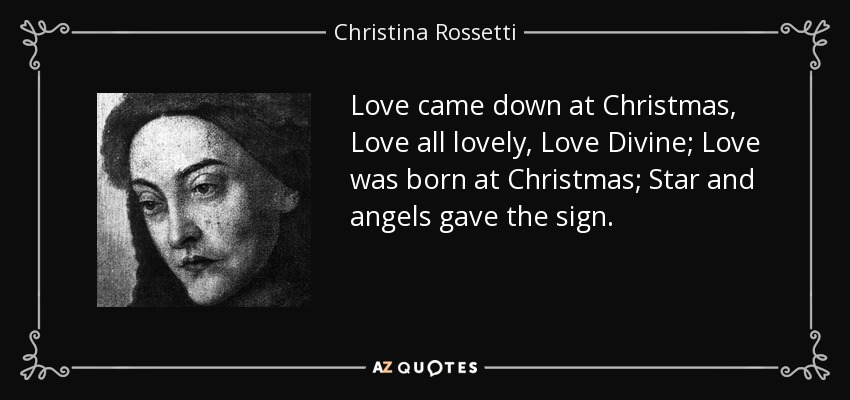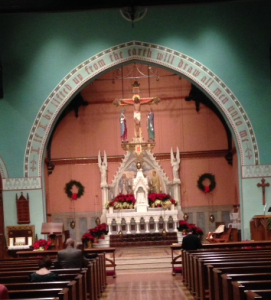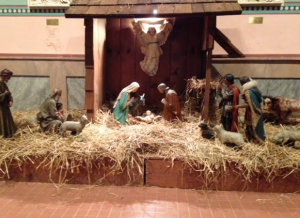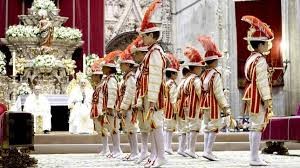All Shall Be Well
All shall be well, and all shall be well, and all manner of thing shall be well. Thus spake Our Lord to Lady Julian of Norwich. Is it true? The majority if Christians have believed in an everlasting hell. Many have believed that the vast majority of the human race is consigned to eternal punishment: all unbelievers, heretics, schismatics, unrepentant sinners, all unbaptized children — including those who die before birth from natural causes or abortion. The majority of the human race has always died before the age of reason. The saved are a tiny speck of light shining against the eternal darkness of the massa damnata. This has been gradually softened over the centuries: unbaptized children were sent to Limbo, heretics and schismatical might be spared from hell because of their invincible ignorance, non-believers who were just might be saved if they followed their conscience and the light of reason. But unrepentant sinners would suffer eternal flames.
A minority opinion in the church was that in the end all will be saved. Augustine mentions dismissively the misericordes, the merciful one, who believed this (but blessed are the merciful, for they shall obtain mercy). Hans Urs von Balthasar in Dare We Hope That All Men Will Be Saved came close to universalism without taking the final step. David Bentley Hart, in his somewhat grumpy defense of universal salvation, That All Shall Be Saved, collects some of the past defenders of universalism.
One theme in Scripture that seems to tell against universalism is that of the Elect. God feely chooses to choose some and reject others: I have loved Jacob, but I have hated Esau. This theme was developed into the doctrine of double predestination: in God’s sovereign and inscrutable will, He creates some rational creatures for eternal happiness and others for eternal torment. This is really not much softened by saying that God creates rational creatures whom He knows will damn themselves by being unrepentant sinners.
But why does God elect certain people, certain nations? Why Israel and not Egypt? Why those who have heard the Gospel and accepted it and not our ancestors who lived tens of thousands, hundreds of thousands of years ago? What is the purpose of election?
I think that the doctrine of election can best be understood in the Biblical image of the first fruits or of what Joseph Ratzinger called vicarious representation. Israel was chosen not to be the sole and exclusive recipient of God’s revelation but to be a light to the Gentiles, the first fruits of the nations unto God. When the first fruits are blessed, the whole harvest is blessed. Jesus Christ was the first fruits; in Him all the redeemed are blessed. The Church is the first fruit of the universe: in it all humanity and indeed the whole creation is blessed.
But what of God’s wrath spoken of so often in the Scriptures? God is simple: we cannot say that part of Him is just and part of Him is merciful. Too many Christians are dualists: they think of the divinity as Ahura Mazda and Ahriman. God is pure act, that act is Love; He is uncreated light and fire. Sinners experience God’s love as fire: but it is a fire that seeks not to destroy but to purge, to cleanse, to restore. It can be resisted, but can it be resisted forever?
Israel sinned, and was condemned to exile and captivity. It repeated the primal sin of disobedience and suffered the same consequences: exile from Paradise, from the Promised Land, from the Temple of the Lord. But God is angry only a little while, and His mercy endureth forever. Adam and Eve were promised a Savior; Israel returned from exile. And lost humankind will be restored to the Father.
The Lord God is a God of truth. And what is truth? Pilate did not wait for an answer, but Aquinas succinctly defined it: the conformance of the mind to reality. Truth is not an act of the will: we do not create reality. It is an act of reason: we conform our idea of something to the reality it represents.
As I approach the end of my life, I know that soon I will stand and experience the judgment of God. He will exercise his accurate judgment and show me the truth of my life. Repentance, I think, begins and perhaps consists in my agreement with His just judgement. But his justice is not a justice that condemns me, but that justifies me, transforms me. He will make me just, conforming me to that image of me in Him which is identical with his being, in a process I will undoubtedly at first find painful as all the darkness is driven out, all the crookedness made straight.
Can I reject His judgment and cling to my own erroneous judgment, justifying myself against Him? That would be final impenitence. But our minds are made to know the truth, our wills to love the good. Is it possible to forever refuse to acknowledge of the truth of our lives and the truth of God’s transforming love? It is possible forever to refuse to love the good for which our wills were created?
Forever! What does that mean? O Ewigkeit, du Donnerwort! Unending duration? Time and space are not absolutes. They are creatures of God and their properties are not unalterable. In fact, we are told that Time will be no more, time at least as we experience it, always passing away into seeming nothingness. Time will lose its vanity; instead of passing into nothingness, it will be full of God, the pleroma, when He is all in all. We cannot imagine or conceptualize it, but we have hints of it even in philosophy: when did 2 and 2 not make 4? Physicists tend to be unadmitted Platonists: there is an eternal world of number which generates the phenomenal world. Linear time is a tricky concept; it is hard to conceptualize. The Scientific American once had an issue on time; it concluded that we have not advanced much beyond Augustine, who admitted that he could not define time. The past does not exist; the future does not yet exist; the present is but an instant. All that we perceive is in the past, and therefore does not exist, even our bodies, since it takes time for the electrical impulses to reach our brain. The world of linear time is a shadow world of unrealities.
In the New Creation we will have a new time: death, non-being, evil will be no more. How could hell exist in such a creation? God will be all in all, not just in part, but in all. Will the New Creation interact with the past? Can God change the past? This question was posed by medieval thinkers in light of God’s omnipotence. Most regarded it as a meaningless question, like the one: Can God make a square circle? The past is that which cannot be changed. Or can it?
If we consider the question not in terms of God’s omnipotence but of God’s love, perhaps there is a different answer. God loves all that He has made, no matter when it existed or exists or will exist. He has promised to wipe away every tear, and the whole creation has been drenched in tears and pain, both human and animal. He has promised to make all things new – including the past?
I don’t know how this could be carried out, or what it would mean. But I know, because of my confidence in God’s character as a God who is love, that if it can be done, He will do it. With God, nothing is impossible.
We return to what Jesus said to Lady Julian: all will be well, and all will be well, and all manner of thing will be well. We cannot even comprehend the mysteries of the physical cosmos. Could God explain to us what He is doing, or could we in status viae understand it ? Our confidence is not in our comprehension of His purposes, but in our faith in His character: God is love.
Love came down at Christmas,
Love all lovely, Love Divine,
Love was born at Christmas,
Star and Angels gave the sign.
Worship we the Godhead,
Love Incarnate, Love Divine,
Worship we our Jesus,
But wherewith for sacred sign?
Love shall be our token,
Love be yours and love be mine,
Love to God and all men,
Love for plea and gift and sign.









